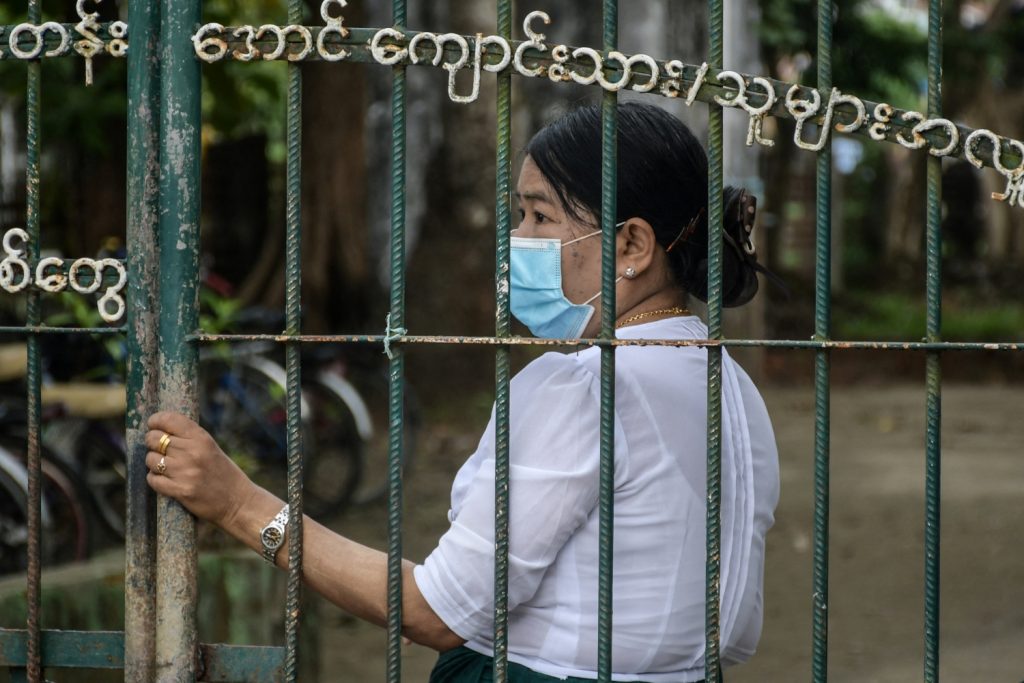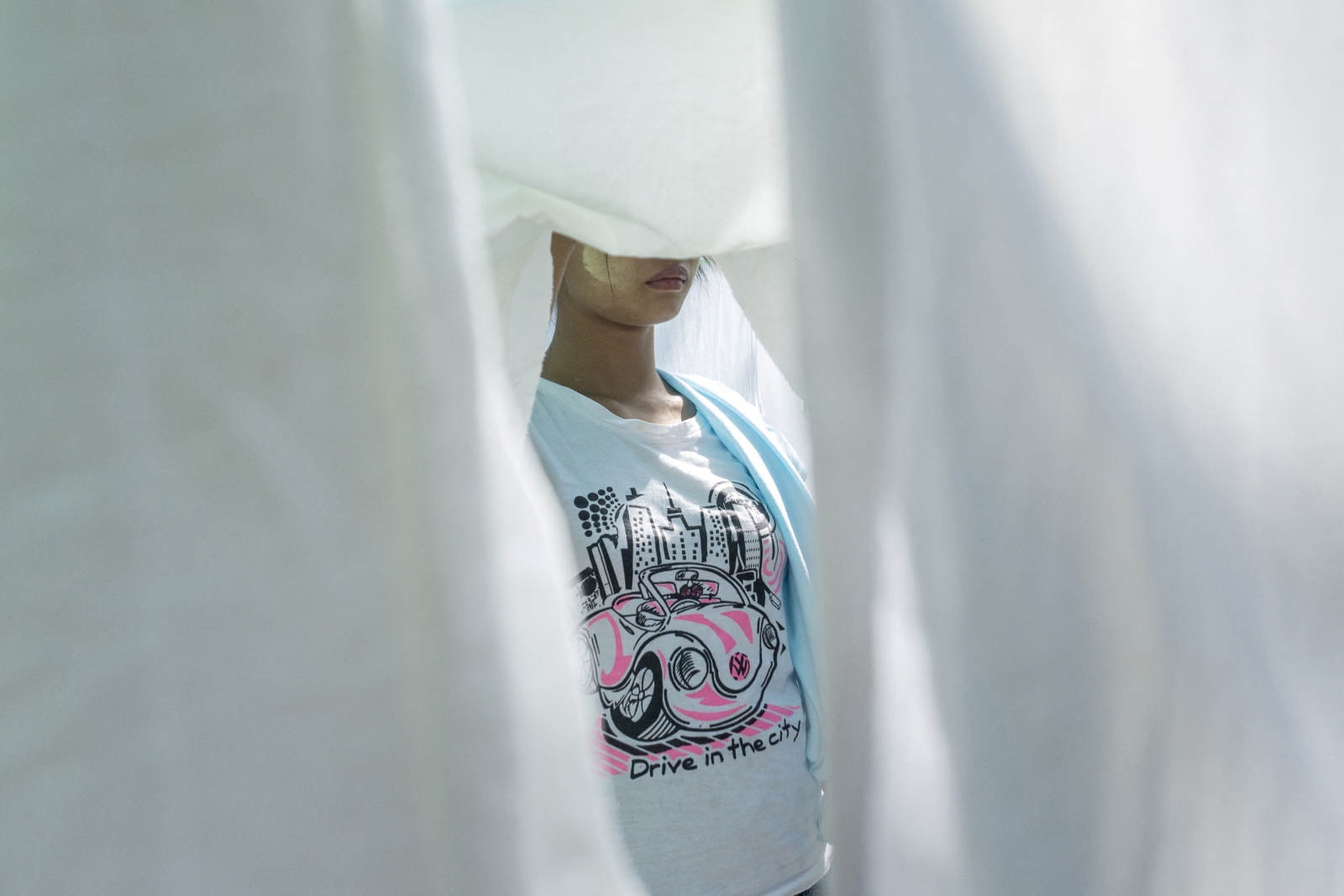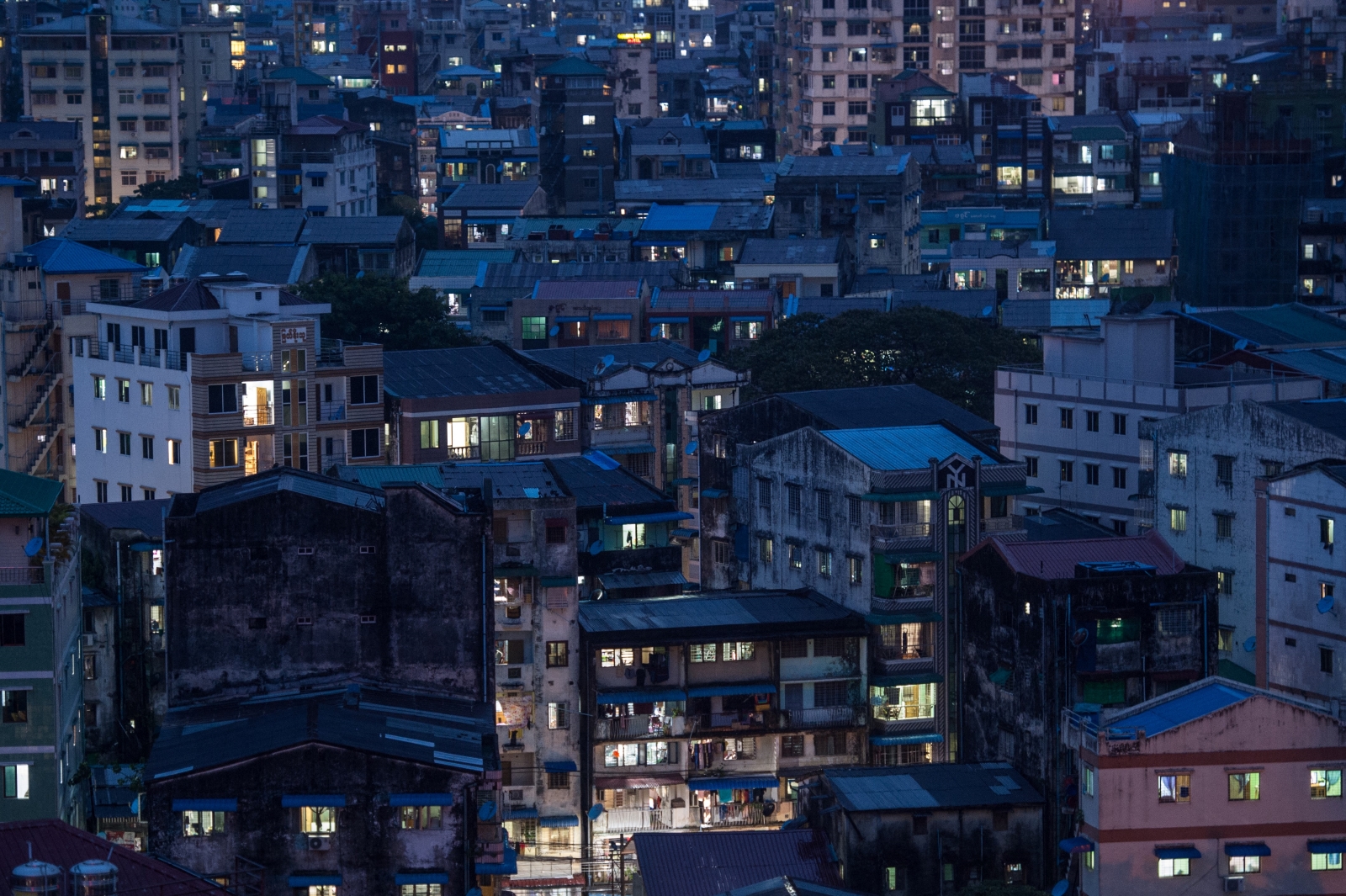In an Ayeyarwady Region town, the first day back at school was marked by low attendance and fear, with many parents resolving to keep their children at home.
By FRONTIER
June 1 was the first day of school after a year-long closure due to the pandemic. It was also the first day of school under a new military dictatorship.
Students, parents and teachers had been urged to boycott the education system to protest the coup, and with schools and other government buildings being targeted for arson and bomb attacks, it was unclear how many students would attend classes.
The primary school in my Ayeyarwady Region hometown (which I won’t name to protect residents from possible reprisals) normally hosts more than 300 children. However, low enrolment numbers in the week before reopening had prompted education staff to tour the town in vehicles rigged with loudspeakers. They promised parents free textbooks and the waiving of enrolment fees, which previously hadn’t been necessary to induce parents to enroll their children.
After a year cooped up at home, many local children seemed excited to go back to school. The school’s spacious playground, with gymnastic rings, seesaws and colourful tyres for climbing over, had been renovated shortly before it was forced to close last year because of COVID-19. While walking past the school, I heard a boy exclaim to his mother, “I’ll get to play in the playground!”
But sensing the danger, and wishing to show their support for the Civil Disobedience Movement against military rule, many parents seemed determined to keep their children at home.
The increased security presence in the run-up to school reopening made my family particularly nervous. As a journalist, I am liable to be arrested at any time and without a reason. Many friends and colleagues have already suffered such a fate.
I had returned to live with my parents in April because I was too frightened to continue living alone in Yangon. Police were often on my street, enquiring whether people were hosting any unregistered guests. If the security forces had found the helmets, press jackets and camera equipment I was keeping in my apartment, I would most likely have been arrested. Not long before I moved, a journalist friend who lived nearby was arrested following a search of his apartment.
On May 24, during the enrolment period, my sister ran inside to say that a truck full of armed police had stopped outside our home. My mother was terrified that they had come for me. My adrenalin was pumping, but the police continued onto the school, which is close by.
When classes began on June 1, about 50 students arrived with their parents – around one-sixth of the student body in normal times. A teacher, who was not wearing a facemask, checked the temperatures of the children, most of whom were also maskless. A large, red sign instructed parents not to enter the school grounds but no one stopped them.
Both parents and teachers seemed on edge, fearful not only of potential bomb blasts but also of ostracism for turning up at the school. A rumour circulated that a teacher had travelled to the school in her everyday clothes, to avoid reproach for not joining other teachers across the country on strike, and had changed on site into the green sarong and white bodice that forms a schoolteacher’s uniform.
The school bell rang at 7am and the young students quietly marched into their classrooms. The mother of one of the students told me they were required to sit about two metres (six feet) apart, rather than four crammed to a bench – a social distancing measure that was easy to implement with so few children attending the school.
While standing outside the school, I heard the sound of students saying their prayers and then reciting their study materials. They did not sing the national anthem and the national school song, as is customary at the start of each school day.
That morning, I heard from friends about explosions at a high school in Ngathaingchaung, a town in Yegyi Township, elsewhere in Ayeyarwady Region. My town remained peaceful until 3pm, when a bomb exploded at the township education office about two kilometres from the school.
Classes continued until closing time at 4pm, when the children emerged, wearing face masks and face shields provided by the school. I noticed that, as in the morning, there was none of the singing that normally signals the end of a school day.
In the evening, I saw some parents with the 100-household leader appointed by the military and a supporter of the military-aligned Union Solidarity and Development Party on guard duty at the school, armed with bamboo poles. A woman waiting to collect her children that afternoon told me that a roster system had been drawn up, with parents obliged to take turns guarding the school.
“If I’m unable to go on guard duty, I have to pay K5,000 to hire someone to fill in for me, which I just can’t afford,” said the woman, a market vendor who asked not to be identified. “I am not from either side,” she added, referring to the National League for Democracy and the USDP. “I don’t have K5,000, even after selling things at the market. I send my child to school to be educated and if I am forced to pay that money, I’ll withdraw my child from school.”
By 8pm, when the nightly curfew took effect, the stretch of road in front of the school was barricaded with desks from the classrooms. From this night on, anyone found outside during the curfew risked arrest.
I heard the echo of another explosion after 8pm, which seemed to be coming from somewhere outside town. By that evening, I had heard from my friends that there had been 12 explosions in Ayeyarwady Region, eight of which were at schools and education offices.
The only reported casualty was in Ngathaingchaung, where a man was injured when a bomb exploded as he motorcycled past the town’s high school.
There was also a false alarm in a village school 6km from our town. A teacher from that school said children cried in terror when they heard an explosion, which was later found to have been caused by an overheating kettle.
Many of the bombings went unreported in the media; and when local outlets did report them, details were scarce. This was in part because of the difficulty of confirming incidents with official sources. For reporters, speaking to the police or visiting the scene of incidents carries the risk of arrest.
I asked a Grade 7 student who attends the high school on the outskirts of my town what precautions he was taking, given the risk of bombings, and if he knew what to do if there was an explosion. He said he had no idea, and had received no guidance from his teachers or parents.
The next day, even fewer students attended the primary school near my home, and security had been tightened across town. A friend telephoned to say that soldiers were conducting strict checks on travellers; when she left the town, her bags were searched. Others were asked to show the contents of their phones, she said, presumably to check for anti-junta content.
On June 3, student attendance had recovered to the still-modest levels of the opening day. Among those still absent from the school was my 11-year-old neighbour, whose parents chose not to enroll him in protest at the coup. He told me that when he sees other kids in school uniforms, he wants to go to school.
He is among many school-age children near my family home who were not enrolled for the school year. They could not attend school last year because of COVID-19 and they are absent this year because their parents wanted to heed the call for an education boycott. Most of the children are from poor families who cannot afford private tutors, so there is no way for them to catch up on all the missed classes.
These students are falling behind and there is a risk that they, and many others across Myanmar, may drop out of the school system altogether and be condemned to a lifetime of poverty.
While the boycott and bombing of schools is preventing many children from getting back into the system, democracy supporters argue that they would gain little from military-run schools – something that the degradation of education under the previous era of military rule seems to support. But regardless, as the national crisis deepens, children are paying with their futures.







